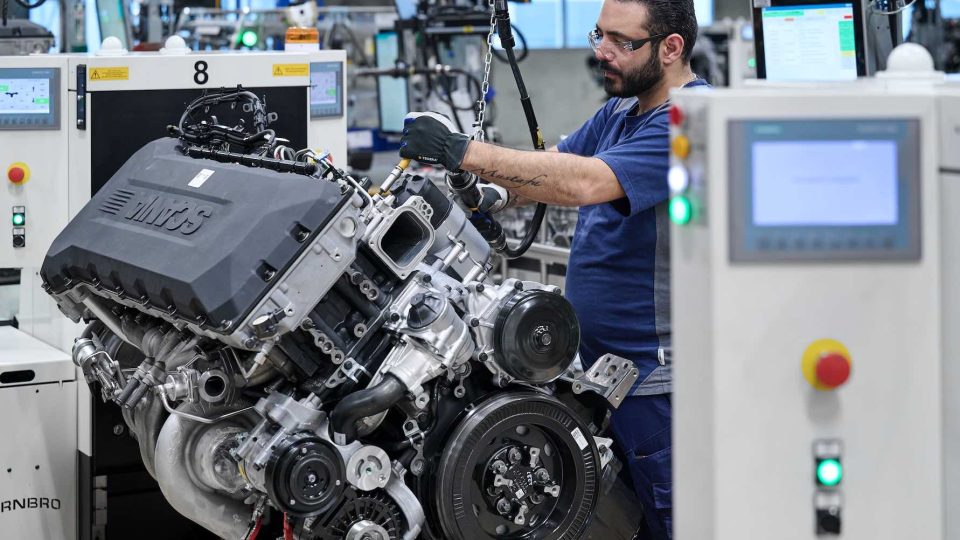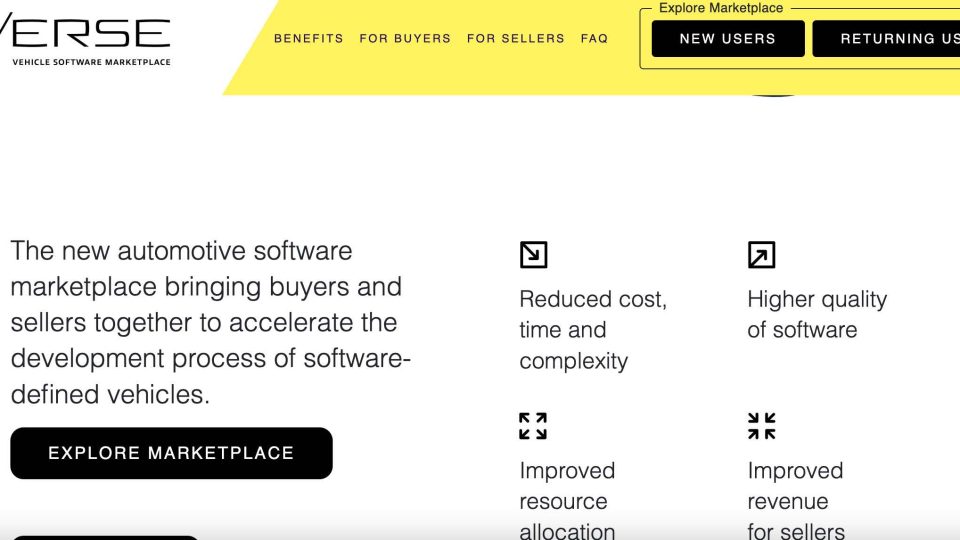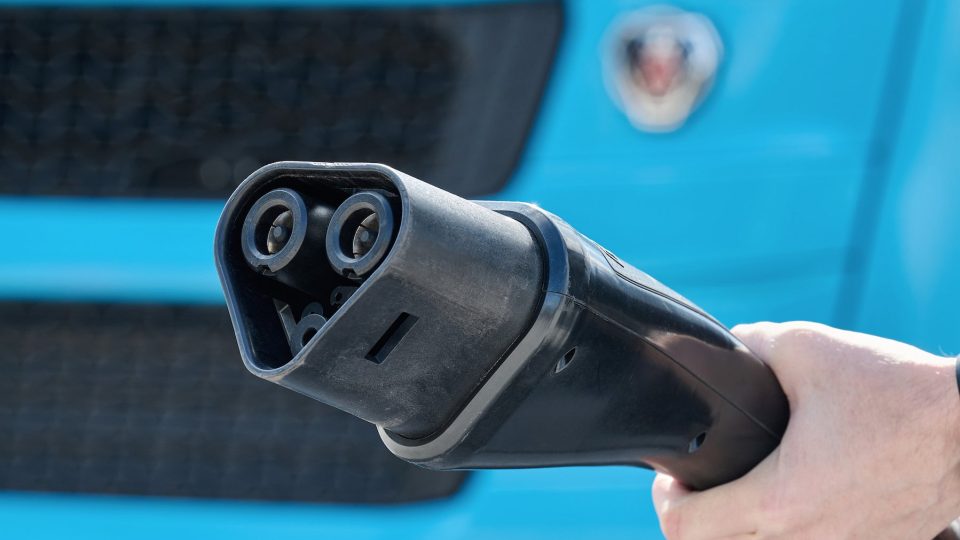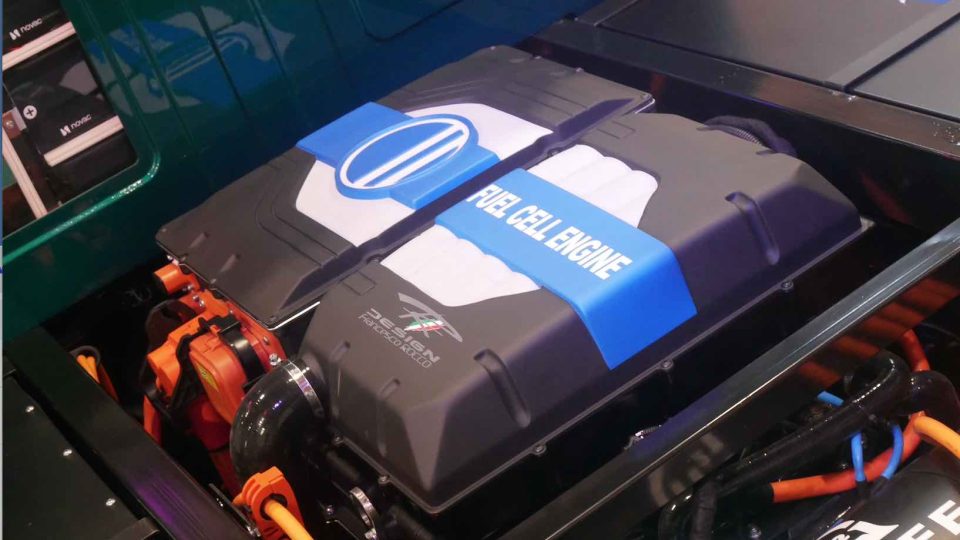IAA Transportation 2024: towards a truly global and innovative exhibition
The sentiment is quite positive. At least as far as commercial vehicles are concerned, IAA Transportation 2024 is going to be a successful edition, as we were told at the traditional International Press Workshop we attended in Frankfurt: an international event that is awaited and appreciated because it helps to understand what's going to happen next September in Hannover.
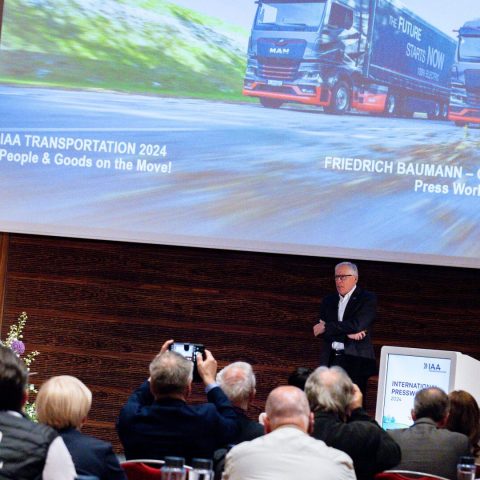
The figures are promising. The sentiment is quite positive. At least as far as commercial vehicles are concerned (the situation is different for buses, though), IAA Transportation 2024 is going to be a successful edition, as we were told at the traditional International Press Workshop we attended in Frankfurt: an international event that is awaited and appreciated because it helps to understand what’s happening. Moreover, the current economic situation in Germany, which is growing less than other major European countries, not to mention China and the United States, is anything but reassuring, as is the public support for the decarbonization of transport (yes, we’re talking about incentives).
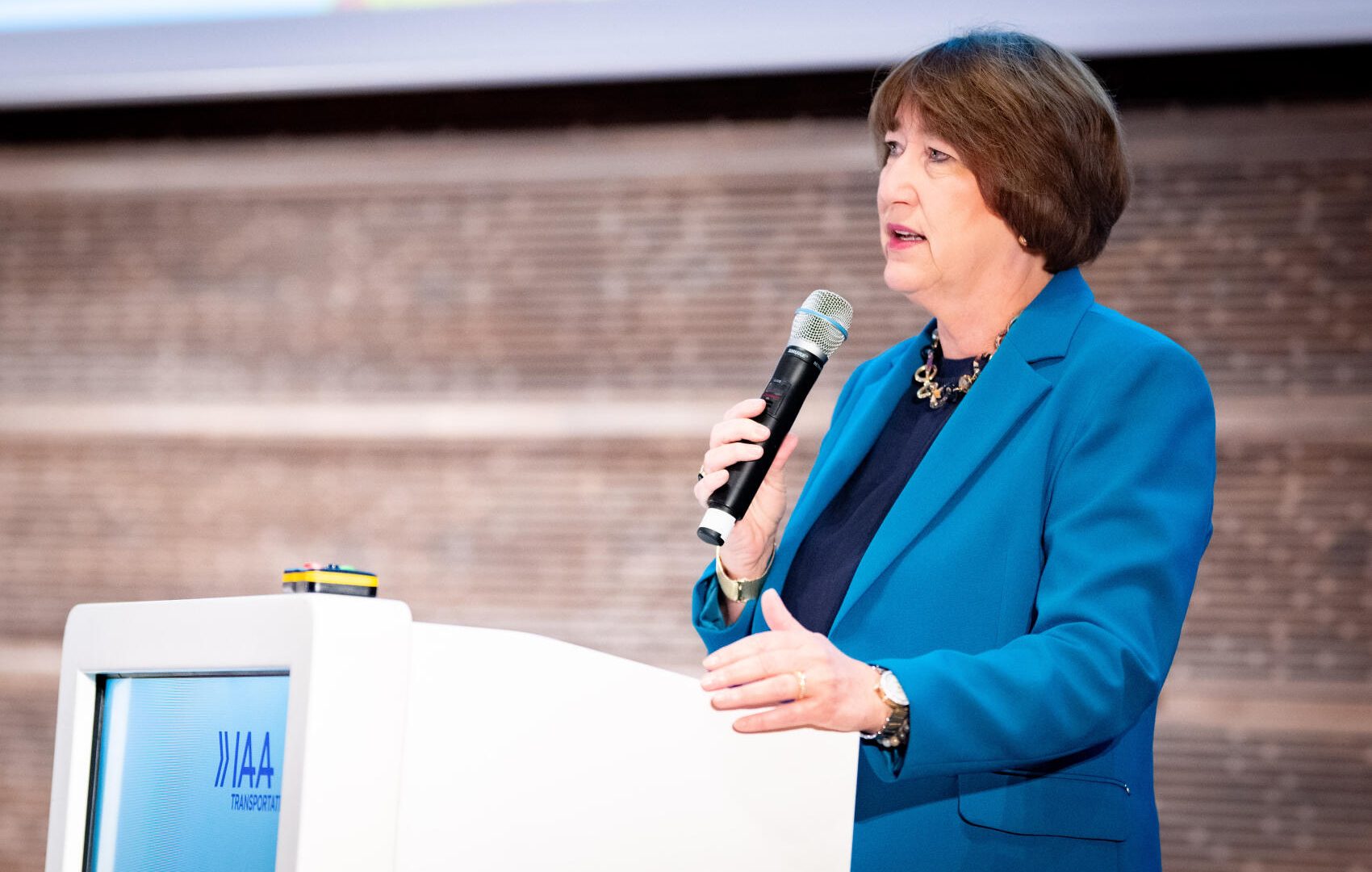
In such a fragmented picture, the organizers of the VDA are proud to announce that, compared to the same period in 2022, bookings are up 13 percent, the total exhibition area will be larger than two years ago, and, most importantly, 70 percent of the exhibitors will be from abroad, confirming the international sprit of the event. With China, Turkey, Italy, the Netherlands, and France, in that order, as the main foreign countries involved. Special attention to China, in particular, doubling the number of exhibitors present compared to a 2022 characterized by the well-known limitations due to Covid.
IAA Transportation 2024: who’ll be there
In Hannover, nearly all the big truck manufacturers will be there. With the exception of Renault Trucks, traditionally focusing its efforts on Solutrans. There is anticipation and curiosity for BYD, but also for Tesla, which will bring the Semi to Europe for the first time, and for the Chinese start-up Windrose, whose hype has been growing lately. There will also be a significant presence among light commercial vehicles, with the Stellantis group (we’ll see how they will participate), Ford Pro, Renault, Toyota, Maxus, Piaggio, and the major new entry Kia (we will discuss this further). And between heavy and light vehicles – electric and otherwise – more than 60 vehicles will be available for test drives in the test area. “With special attention to truck drivers, who will be our guests of honor during the weekend,” said Jan Heckmann, head of IAA Transportation organization, explaining that this year the fair will provide them with shuttles and parking services to involve them more during the final weekend of the event.
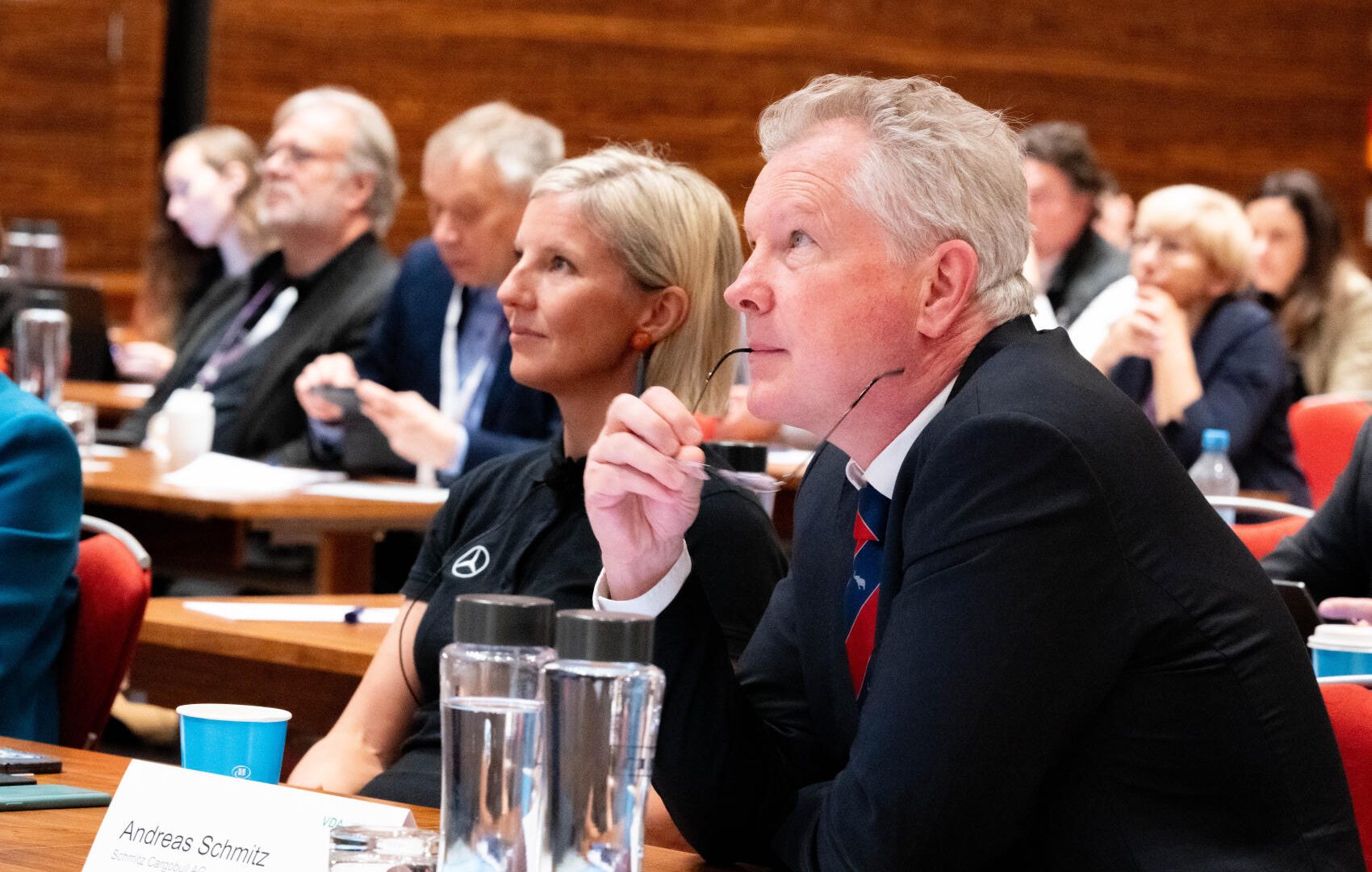
In terms of energy transition, probably the main topic of IAA 2024, a massive presence of companies involved in the infrastructure sector, both electric and hydrogen, is foreseen, as well as those actors that make up the transport ecosystem of the present/future. We are talking about software, services, key components such as batteries, which will have more and more space in the Hannover halls. Infrastructure, autonomous driving, and artificial intelligence are some of the most recurring themes of the conferences scheduled in pavilion 18, with the opening entrusted to the German federal government’s Minister of Transport.
Mercedes, MAN, Quantron…
The Frankfurt press preview allowed us to look at some companies in particular before each edition. Among these, Mercedes-Benz Trucks is focused on continuing its electrification path, with the eActros 600 under the spotlight. It is from Frankfurt, with CEO Karin Rädstrom behind the wheel, that the European tour started, bringing the vehicle to various countries, with journalists having the opportunity to test it directly (we will do so in July). At the IAA, Mercedes will also officially present TruckCharge, the new company created specifically to deal with charging infrastructure. “We will need 35,000 charging points in Europe by 2035, and at least 2,000 hydrogen refueling stations,” warned Karin Rädstrom during her speech.
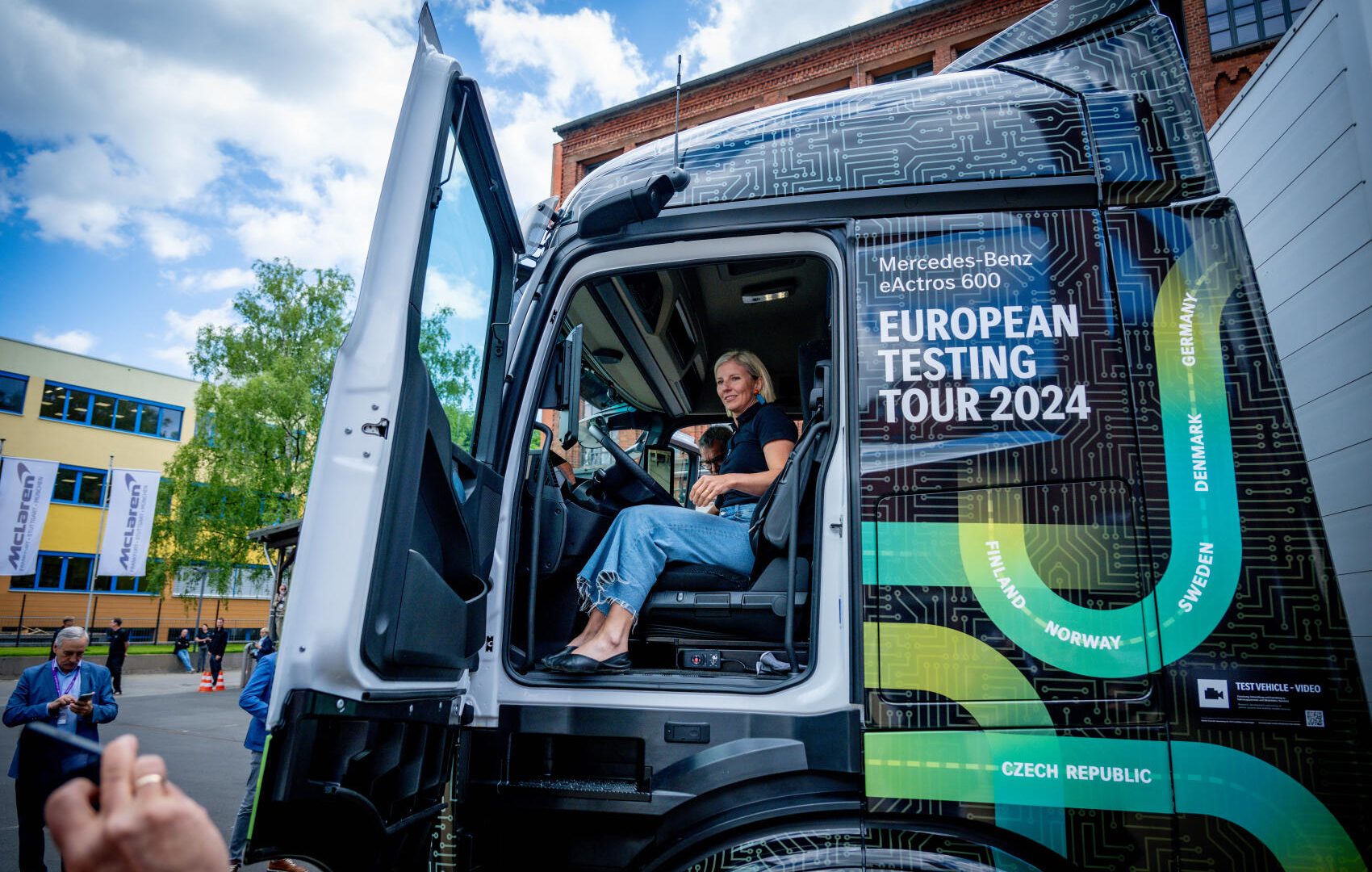
Hydrogen, in the form of the new truck with an internal combustion engine powered by the fuel central to future transport plans, will be the protagonist at MAN’s stand: the hTGX will make its first appearance, backed by over 100 expressions of interest as Friedrich Baumann mentioned in Frankfurt. The TGE Next Level presented to the international press at Transpotec will also be there, as well as the eTruck seen in Milan, in 2 and 3-axle versions. “The eTruck is continuing its growth path,” said Baumann, “and so far we have received over two thousand pre-orders.” Back to hydrogen, Quantron will showcase its range of zero-emission vehicles: from the QLI derived from the Iveco Daily to the QHM Aero with a MAN cab and aerodynamics (as well as the powertrain) developed internally by the Augsburg specialist. CEO Andreas Haller announced at the IAA the unveiling of an agreement with a major manufacturer. Lips are sealed at the moment: we have to wait for Hannover.
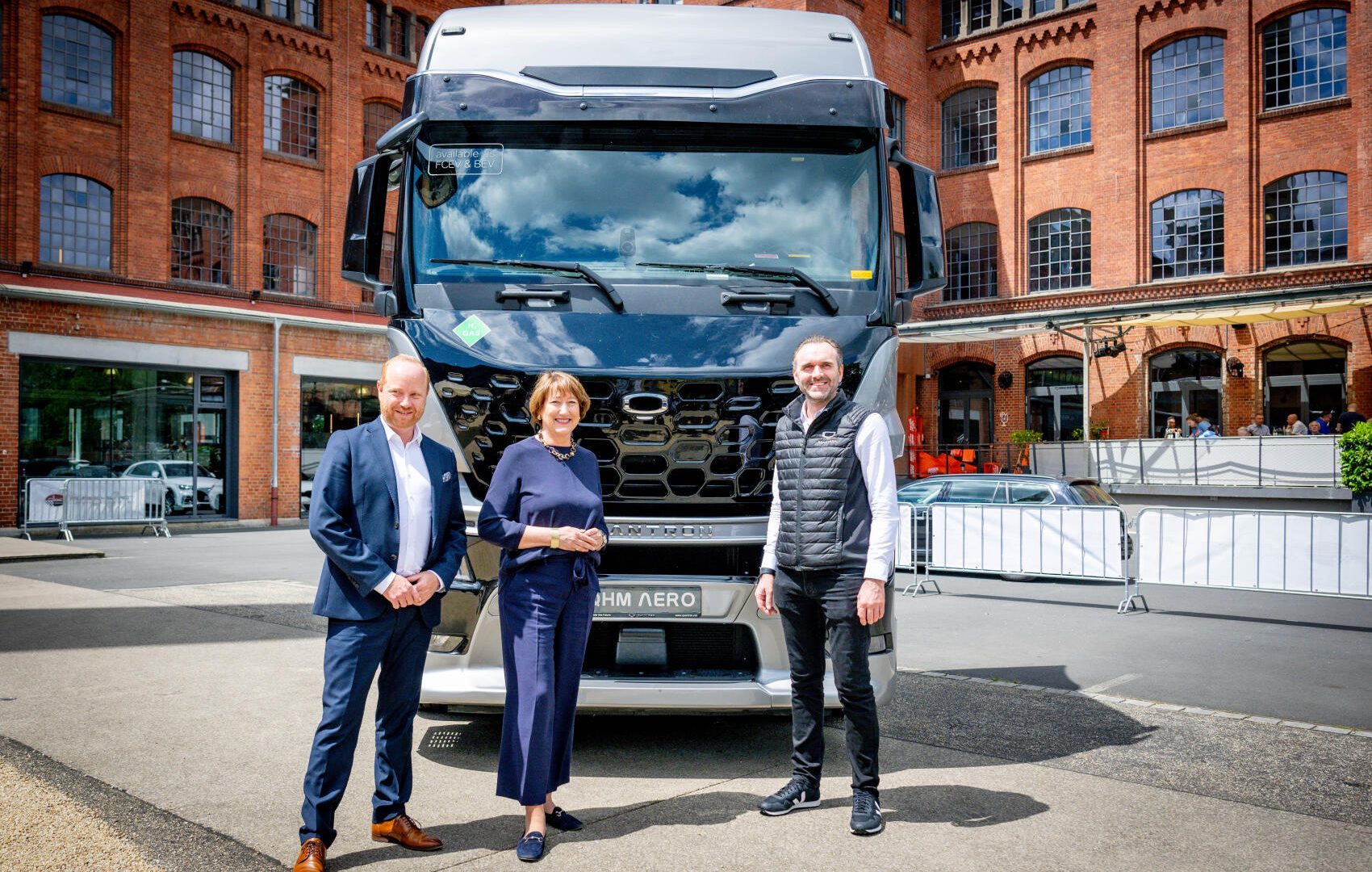
Light commercial vehicles: Ford Pro and the first time for Kia
And now let’s talk about light commercial vehicles. Among the many names that will exhibit at the fair, Ford, the historic European leader in sales, is not missing. Ford Pro, the specific division for commercial vehicles created a couple of years ago, is also committed to completing the electrification of the range, which also began a couple of years ago with the E-Transit and continued with the smaller models. The latest in the order of time is the E-Transit Custom, which we tested a few days ago. “It is not easy to convince our customers to switch to electric vehicles,” said Claudia Vogt, director of Ford Pro in Germany. “We also leverage our consultancy strength, but it is still a gradual development, in which technologies such as plug-in hybrids, particularly suitable for those who occasionally need to undertake longer journeys, play an important role. Not surprisingly, our flagship pickup, the Ranger, will also be a plug-in hybrid.”
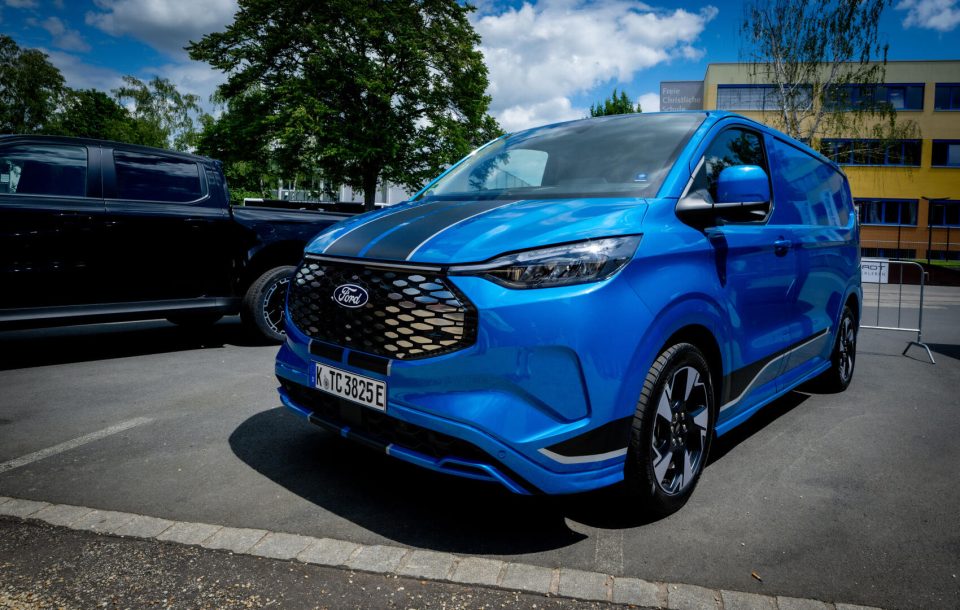
The perhaps most surprising news that emerged from the Frankfurt preview is Kia’s participation, marking the return of the Korean brand in the light commercial vehicle segment. “A project that has been underway since 2021,” explained Pierre-Martin Bos, director PBV (Platform Beyond Vehicle), Kia Europe, “with a long-term vision, considering the next 10-15 years.” We are, of course, talking about electric vehicles, with the presentation next September of the architecture on which the first van expected on the market will be based, not before 2025.
The model will be called PV5, will have a modular design starting from the external structure, and will use sustainable and recycled materials for the bodywork. The higher-end PV7 should be released in 2027. The factory is under construction in Korea, from where they aim for the world and Europe in particular, considered the most interesting area for electric vans in the coming years. The goal is to produce 300,000 units by the end of the decade. It is the first time Kia participates in the IAA.






